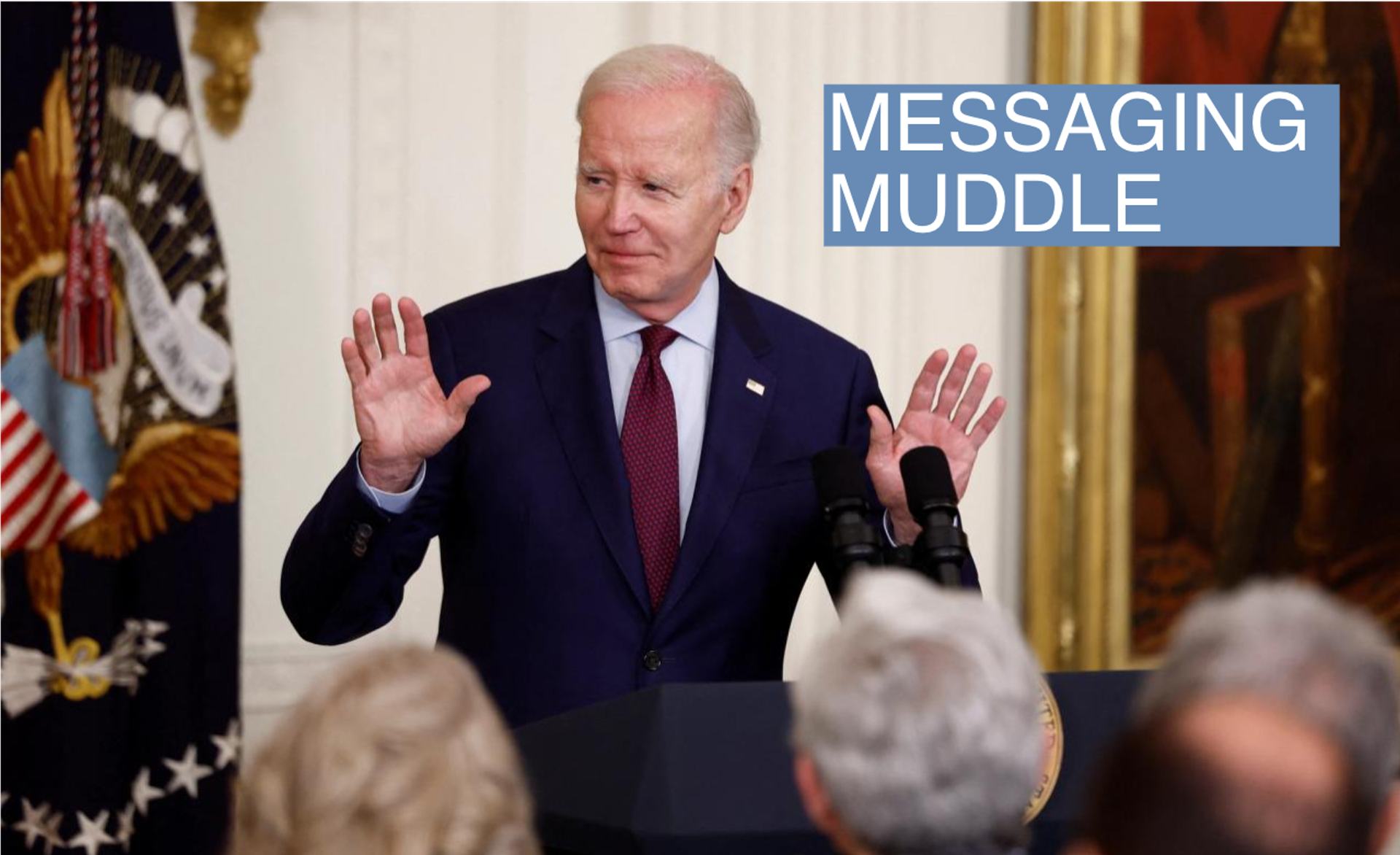The News
Left out of the loop in talks, House Democrats aren’t happy with how the White House has handled its messaging around the debt limit negotiations a week ahead of the crucial June 1 deadline.
“They need to do their job,” Steven Horsford, D-Nev., the Congressional Black Caucus chair, told Semafor. “It starts with the President. He has the power of the bully pulpit of the presidency.”
The White House, he said, “doesn’t have a clear message,” especially with the Senate out of town and not providing backup. His advice to the president: “Have a national address to explain to people what’s happening.”
Maryland Rep. Steny Hoyer, the former House majority leader, told Semafor he would urge Biden to have a fireside chat about the debt limit as well, even as he predicted a successful resolution. “I think the president really does need to explain to the American people what this is about more clearly,” he said.
In this article:
Kadia’s view
In the press, Republicans have dominated the discussion with their talking points. They’ve briefed reporters, oftentimes after exiting the actual negotiation room, and presented policy clashes with their Democratic counterparts from their point of view.
Speaker Kevin McCarthy has been personally generous with press access, hammering away at Democrats over the national debt — much of which, Democrats note, was run up via bipartisan pandemic relief and budget deals — and giving his conference a clear lead to follow, even if they don’t always take it.
In contrast, Biden’s team of negotiators leave silently, sometimes relaying a counter-message with some grievances, but very little detail about what the administration is asking for.
The information gap has House Democrats on the defense, still parroting talking points from months ago — that Republican demands to haggle over the debt ceiling were an illegitimate attempt to extort devastating budget cuts — which no longer align with the strategy of a White House that is now deep in negotiations.
“I have no idea where Biden is right now,” one Democratic member told Semafor, who asked to remain anonymous in order to speak freely. ”Biden had said, ‘We’re not going to negotiate. We’re not going to negotiate.’ And all of a sudden we’re negotiating,” they said.
Asked about the complaints from Democrats, an administration official pushed back, arguing that both Biden and high-ranking staffers like Press Secretary Karine Jean-Pierre had made the administration’s priorities — like fighting back against the GOP’s demands for work requirements and protecting climate spending — clear. They also said the White House needed to be less pointed with its rhetoric at times in order to negotiate effectively, and that it had worked closely with Democrats on the Hill to carry a message that contrasted with Republicans.
On Wednesday, the White House hammered at a controversial comment by Rep. Matt Gaetz for, who eagerly described himself and fellow conservatives as “hostage” takers. At a press briefing, Jean-Pierre told reporters Gaetz had said the “quiet part out loud” about Republican tactics. The administration official told Semafor that the quote had given Democrats more cohesion on messaging: It came up in a daily White House call with Schumer’s and Jeffries’ offices, and who agreed to go on offensive about it.
But that’s still ultimately a process story: It doesn’t speak to the substantive concerns members, and their constituents, are trying to navigate about an emerging deal.
“We’re losing the war on framing,” Rep. Summer Lee, D-Pa. told Semafor. “We’re talking about spending, spending, spending, spending, we need to be talking about cuts. We need the administration to be talking about cuts.”
It’s all left Democrats confused, and often unable to respond to Republicans’ debt limit rhetoric — not just because they don’t want to usurp the negotiations, but often because they don’t know what’s going on at all.
Some of them want Minority Leader Hakeem Jeffries to be at the negotiating table with the president’s team. Instead they worry he’s been relegated to the role of chief salesman for Biden’s talks, but without the clout needed to reassure members nervous about a deal or to effectively message about a negotiation he’s not actually involved in.
“I do wish leader Jeffries would be in the room because I think he’s an exceptional representative for all of us: A great head, a great heart, and a very able negotiator,” Rep. Dean Phillips, D-Minn. told Semafor.
“Hakeem does not have the kind of bullhorn he should, because he’s not in the room,” Rep. Jared Huffman, D-Calif. told Semafor. “We need more people listening to him and amplifying his message, but the way the current negotiation has been structured, he’s been a little diminished,” he added. “That’s really unfortunate.”
Room for Disagreement
Not everyone agrees with filling in rank-and-file members on every incremental step of the negotiation.
“As someone who comes from a background in national security where I did negotiation as part of my job, you can’t be completely transparent in the middle of a negotiation,” Rep. Elissa Slotkin, D-Mich. told Seamfor. “You just simply cannot because there’s a whole dance happening between the two sides.”
— Joseph Zeballos-Roig contributed reporting
